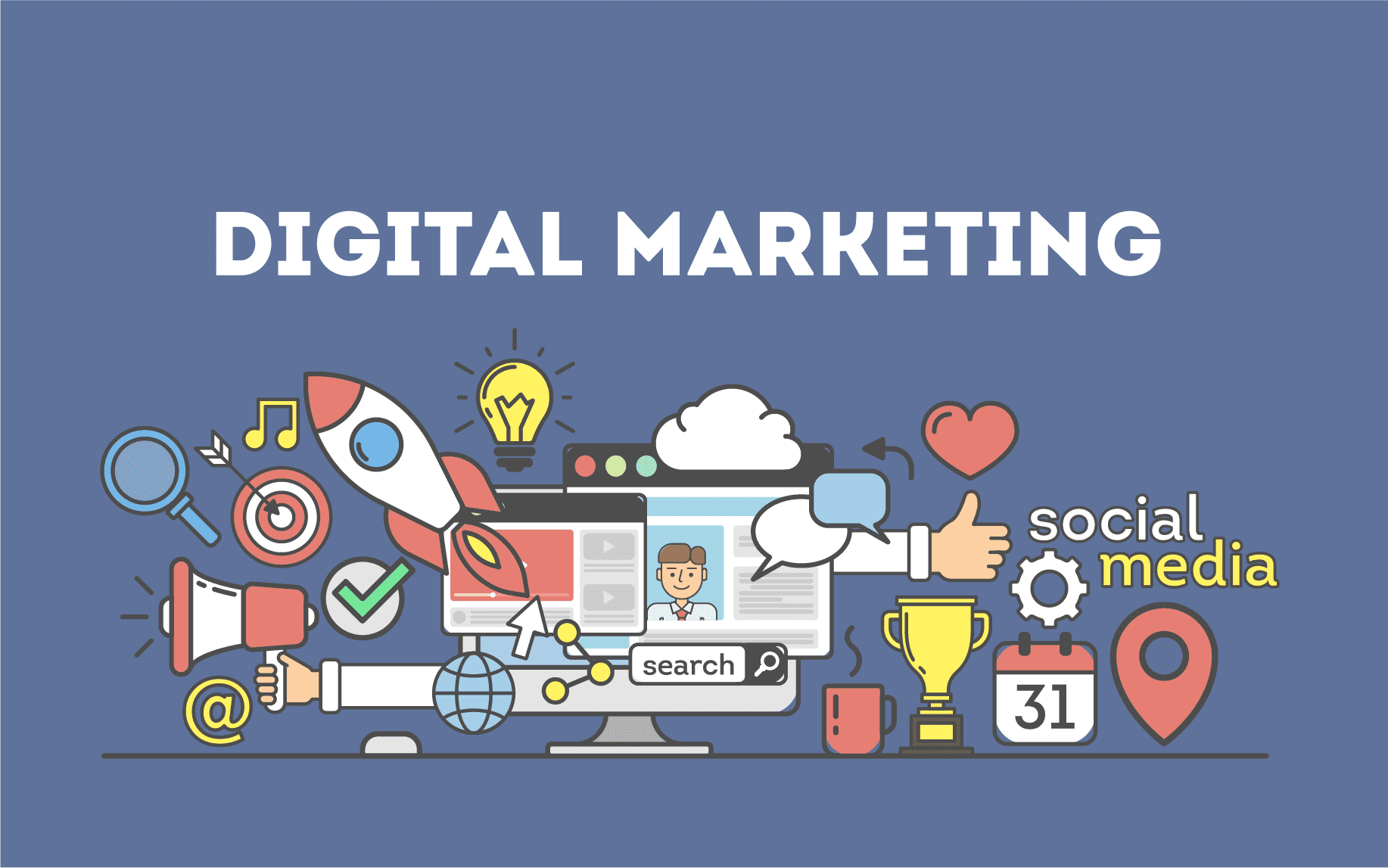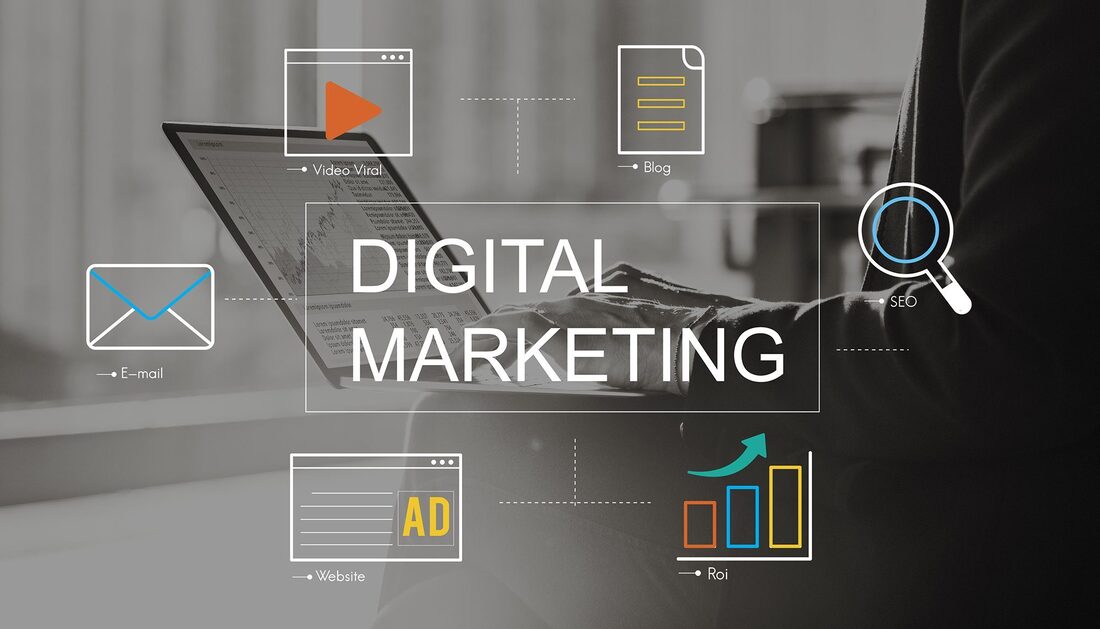Best Digital MarketingAgency in Houston
Digital marketing in Houston, like in any other city, involves various strategies and channels to reach and engage the local audience.
Here are some key aspects of digital marketing in Houston:
- Local SEO: Search engine optimization (SEO) is crucial for businesses targeting the Houston market. Optimizing your website and online content with relevant keywords, creating local listings on platforms like Google My Business, and obtaining positive customer reviews can help improve your visibility in local search results.
- Content Marketing: Creating high-quality, relevant content is essential for engaging the Houston audience. Blog posts, articles, videos, and infographics that provide value to your target audience can help establish your brand as an authority and attract local customers.
- Social Media Marketing: Houston has a vibrant social media scene, making platforms like Facebook, Instagram, and Twitter valuable for businesses. Creating compelling content, running targeted ads, and engaging with the local community can help increase brand awareness and drive traffic to your website or physical location.
- Paid Advertising: Pay-per-click (PPC) advertising can be effective for targeting specific audiences in Houston. Platforms like Google Ads and social media ad platforms offer advanced targeting options, allowing you to reach potential customers based on location, demographics, interests, and more.
- Influencer Marketing: Houston is home to a thriving community of influencers and content creators. Partnering with local influencers who have a relevant following can help promote your products or services to their engaged audience and generate brand awareness.
- Local Directories and Review Sites: Houston residents often turn to local directories and review sites to find businesses. Ensure your business is listed and optimized on platforms like Yelp, TripAdvisor, and local directories specific to Houston.
- Mobile Optimization: With the increasing use of mobile devices, it’s crucial to optimize your website and digital assets for mobile users. Ensure your website is mobile-friendly, loads quickly, and provides a seamless user experience.
- Analytics and Measurement: Implementing analytics tools like Google Analytics can help track the effectiveness of your digital marketing efforts. Monitor key metrics, such as website traffic, conversions, and engagement, to understand what strategies are working and make data-driven decisions for optimization.
- Local Events and Community Involvement: Participating in local events, sponsoring community initiatives, and collaborating with other businesses can help increase your visibility and build relationships within the Houston community.
It’s important to adapt your digital marketing strategies to the unique characteristics of the Houston market. Stay informed about local trends, preferences, and events to effectively engage with the local audience and drive business growth.
How Digital Marketing Works
Digital marketing refers to the promotion of products or services using digital channels such as search engines, social media, email, websites, mobile apps, and other digital platforms.
Here are some key points to keep in mind when it comes to digital marketing:
Understand your target audience and their online behavior to create effective digital marketing strategies. Create a user-friendly website that reflects your brand and values, and optimize it for search engines. Use social media platforms to connect with your audience and build relationships. Regularly share valuable content, engage in conversations, and respond to queries and feedback. Consider paid advertising to boost your reach and generate leads. Popular options include pay-per-click (PPC) advertising, social media advertising, and display advertising. Email marketing can help you reach a targeted audience and build relationships with customers. It’s an effective way to promote products, share updates, and offer special deals.
Use analytics tools to measure the effectiveness of your digital marketing campaigns. Track key metrics such as website traffic, conversion rates, and engagement levels, and use this data to improve your strategies. Keep yourself informed about the latest trends and best practices in digital marketing. Attend webinars, read industry blogs, and network with other professionals to stay ahead of the curve.
I’d like to share with you an interesting stat in digital marketing.
An interesting stat in digital marketing is the growing influence of video content. According to a study by Cisco, it is estimated that by 2023, video will account for 82% of all internet traffic. This highlights the increasing popularity and effectiveness of video marketing in capturing and retaining audience attention.
Another interesting stat is the impact of personalized marketing. According to a report by Epsilon, 80% of consumers are more likely to do business with a company if it offers personalized experiences. This emphasizes the importance of tailoring marketing efforts to individual preferences and needs, as it can significantly improve customer engagement and conversion rates.
75% Of Marketers Claim that they have built Business’ Trust with Digital Marketing
Furthermore, the rise of mobile usage is a significant trend in digital marketing. According to Statista, as of 2021, approximately 54% of all website traffic worldwide comes from mobile devices. This emphasizes the importance of optimizing digital marketing strategies for mobile platforms to ensure a seamless user experience and maximize reach.
Finally, the increasing focus on voice search cannot be ignored. ComScore predicts that by 2022, half of all online searches will be voice-based. This highlights the need for digital marketers to optimize their content and SEO strategies to accommodate voice search queries, as it presents a new avenue for reaching and engaging with potential customers.
These stats illustrate the dynamic nature of digital marketing and emphasize the importance of staying up to date with emerging trends and technologies to effectively reach and engage target audiences.
With the help of digital marketing, you can become successful in your business
Set Clear Goals: Define what you want to achieve through digital marketing. Whether it’s increasing brand awareness, generating leads, driving sales, or expanding your online presence, having clear goals will guide your strategies.
Know Your Target Audience: Understand your target audience’s demographics, preferences, and online behavior. This knowledge will help you create personalized and targeted marketing campaigns that resonate with your audience.
Build a Professional Website: Create a user-friendly, visually appealing, and responsive website that represents your brand effectively. Your website should provide a seamless experience, be optimized for search engines (SEO), and have clear calls-to-action to encourage conversions.
Search Engine Optimization (SEO): Implement SEO strategies to improve your website’s visibility in search engine results. Optimize your website’s content, use relevant keywords, build quality backlinks, and ensure your website loads quickly.
Social Media Marketing: Utilize social media platforms to promote your business, engage with your audience, and build a community. Identify the social media channels most relevant to your target audience and regularly post engaging content, interact with followers, and run targeted ad campaigns.
Pay-Per-Click Advertising (PPC): Consider using platforms like Google Ads or social media advertising to drive targeted traffic to your website. Set up effective ad campaigns, optimize your ads based on performance data, and track conversions to ensure a positive return on investment (ROI).
Analytics and Data Tracking: Utilize web analytics tools like Google Analytics to track the performance of your digital marketing efforts. Analyze data to gain insights into user behavior, identify trends, and make data-driven decisions to improve your campaigns.
Continuous Learning and Adaptation: Stay updated with the latest trends and techniques in digital marketing. Attend webinars, conferences, and workshops, follow industry blogs, and learn from successful digital marketers. Adapt your strategies based on changing consumer behavior and market dynamics.
Remember, digital marketing is an ongoing process, and success requires consistent effort, experimentation, and adaptation. By understanding your audience, delivering valuable content, and leveraging various digital marketing channels, you can increase your chances of achieving success in your business.




